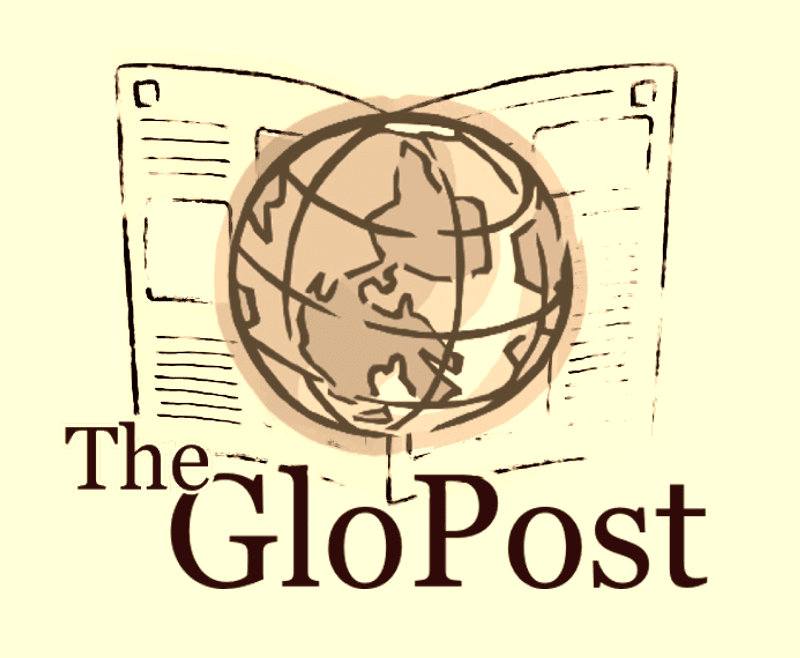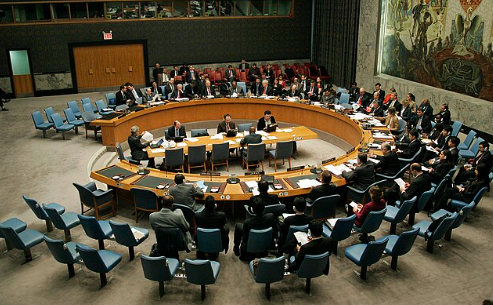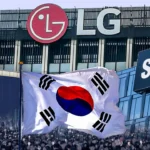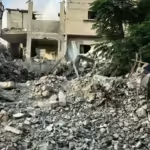The UN was created after World War II with a central goal: promote international peace and security. Security initiatives are defined by conflict prevention and peacekeeping, seeking to preserve the human rights of all citizens. The UN also works to undertake more proactive peacebuilding, working to provide the structural framework required for positive peace. Historically, though, these goals have been hard to attain. This was evident in half hearted UN responses to several of the worst human rights violations of the 1990s, including ethnic cleansing in Yugoslavia and Rwanda. Individual member states often stand in the way of responding to security threats, thereby hindering UN action.
This is evident in how the UN failed in their mission to properly maintain peace and security within the Darfur region of Sudan. In 2003, the government of Sudan, led by President Omar al-Bashir, faced uprisings from the Darfuri population in the West of the country. al-Bashir began funding the military group the Janjaweed, a roaming group of young soldiers on camels. The Janjaweed began traveling among towns and villages in the Darfur region, massacring men and committing sexual violence against women. Despite years of reports of violence to the UN, the Security Council failed to authorize military force to protect the security of villages and people in Darfur until several years after the conflict began. By this point, around 300,000 people were believed to have already been killed. With the conflict persisting until 2020, and recent re escalations becoming more evident, the Darfur War has indelibly shaped the UN.
The UN’s chronic failure to ensure security in Darfur reflects the uneven distribution of power to member states. This is evidenced through the ability of states to silence minority groups within them, as well as the power of permanent members of the UN Security Council.
First of all, the UN does not recognize stateless nations, and thus can’t properly ensure their security from recognized countries. The Fur people are a stateless nation, straddling Western Sudan and parts of Eastern Chad. They identify as Black and have permanent villages, in contrast to the traditionally nomadic Arabs that occupy the rest of Sudan. Dr. Mukesh Kapila, the UN Coordinator for Sudan was one of the first to raise concerns to the UN about Darfur. However, he was largely silenced by the Secretary General Kofi Annan, who feared burning bridges with al-Bashir. The UN didn’t want to stop al-Bashir from following through with peace talks with South Sudanese insurgents, who were also in a war with the Sudanese government at that time. Thus, the Darfuri people were pretty much ignored, ultimately leading to a complete failure in protecting their security during the ensuing genocide. This demonstrates how the interests of a member state, Sudan, were put ahead of a minority ethnic group that didn’t have their own state, and thus didn’t enjoy formal representation in voting and decision making.
Now, in the years following the Darfur War, many defendants of the UN, including then-Undersecratary General Sir Kieren Pendergast, have argued that not having formal recognition of stateless nations doesn’t prevent their needs from being addressed. They argue local UN officials like Dr. Kapila can report on these communities’ needs in lieu of the national government. However, Western scholars have made the case that countries will intentionally abuse this at the UN in order to malign minority groups. Dr. Kapila has claimed that the Sudanese government intentionally dragged negotiations over South Sudan, knowing the UN wouldn’t take action over Darfur while these were ongoing. The Sudanese government requested his withdrawal from Sudan, which the UN essentially was forced to fulfill. Even when UN officials like Kapila try to do their jobs in protecting minority groups’ security, they are often silenced by member states. This demonstrates how member states bear undue power at the UN, allowed to freely infringe on the security of minorities.
The failures of the UN to protect the Darfuri are especially glaring when you contrast it to other IGOs. The EU, for example, formally recognizes nationless people groups such as the Roma, Basque, and Catalans. The EU Charter of Fundamental Rights prohibits discrimination against minority groups, which is enforceable by the European High Court of Human Rights. Unlike the UN, the EU is an example of implementing enforceable human rights protections. This generally ensures these groups are secure and don’t face state-sponsored violence or persecution, even though they don’t enjoy the protection of an internationally recognized state. While both the UN and EU take an egalitarian approach to enforcing personal security and the security of minority groups, the UN often lacks the necessary mechanisms to enforce these ideals.
A second key shortcoming with the UN is that it is overwhelmingly influenced by powerful member states. Permanent members of the UN Security Council can veto any resolution that comes forward, giving them tremendous power. This can effectively stall any attempt to utilize the UN in enforcing security, even when there are egregious threats to security in the form of human rights abuses. In the Darfur Crisis, Security Council resolutions began being put forward to demand Sudan stop supporting the Janjaweed. If unfulfilled, these resolutions could result in economic sanctions or peacekeepers being deployed. However, the Chinese government, which is heavily invested in Sudan’s oil industry, was hesitant to support this. They ended up vetoing several UN resolutions up until 2007 that demanded the Janjaweed be disarmed, as well as ICC referrals and calls for military deployment. China’s extreme power over the UN Security Council was a main reason Sudan could afford to be so dismissive of international criticism. Sudan knew that as long as China continued to support them, they’d be impervious to any UN interference.
This can be understood in the context of a development of spheres of influence by powerful nations within the Global South. Global interdependence is becoming increasingly common, especially with countries like China and their Belt and Road initiative. Countries like Sudan, which would ordinarily lack power at the security council, can suddenly become incredibly powerful via their allies. This can ultimately lead to poor nations like Sudan with power-hungry leaders being willing to offer substantial discounts on raw materials to powerful countries, which can supply weapons and military equipment. Nations like China, meanwhile, seek to grow their political power, gain cheap natural resources and global influence. These global south nations build short-term security, the wealthy nations build long-term security. For institutions like the UN, interdependence is very difficult to deal with. When so many countries are de facto allies, even if just transactionally, of one of the Security Council’s permanent members, it can become nearly impossible to pass Security Council resolutions without receiving vetoes. Even as the UN top brass became very much supportive of intervention, one nation, China, was able to entirely block that from happening.
Tackling this issue has become a key challenge for the UN. Many of the shortcomings originated from claims of sovereignty by Sudan over their own political issues. After the failures in Yugoslavia and Rwanda, many Western states began advocating a Responsibility to Protect, or R2P. Popularized by Obama administration official Samantha Power during the 2000s, it was used as a justification to invade Iraq and Afghanistan. Essentially, R2P argues that threats to the security of civilians, specifically in cases of genocide, can justify a military incursion into a sovereign state. While many Global South nations protested this, it was formally adopted into a mandate for UN Security Council actions. Even 20 years on, we continue to feel the lasting impacts of Darfur in our foreign affairs.





